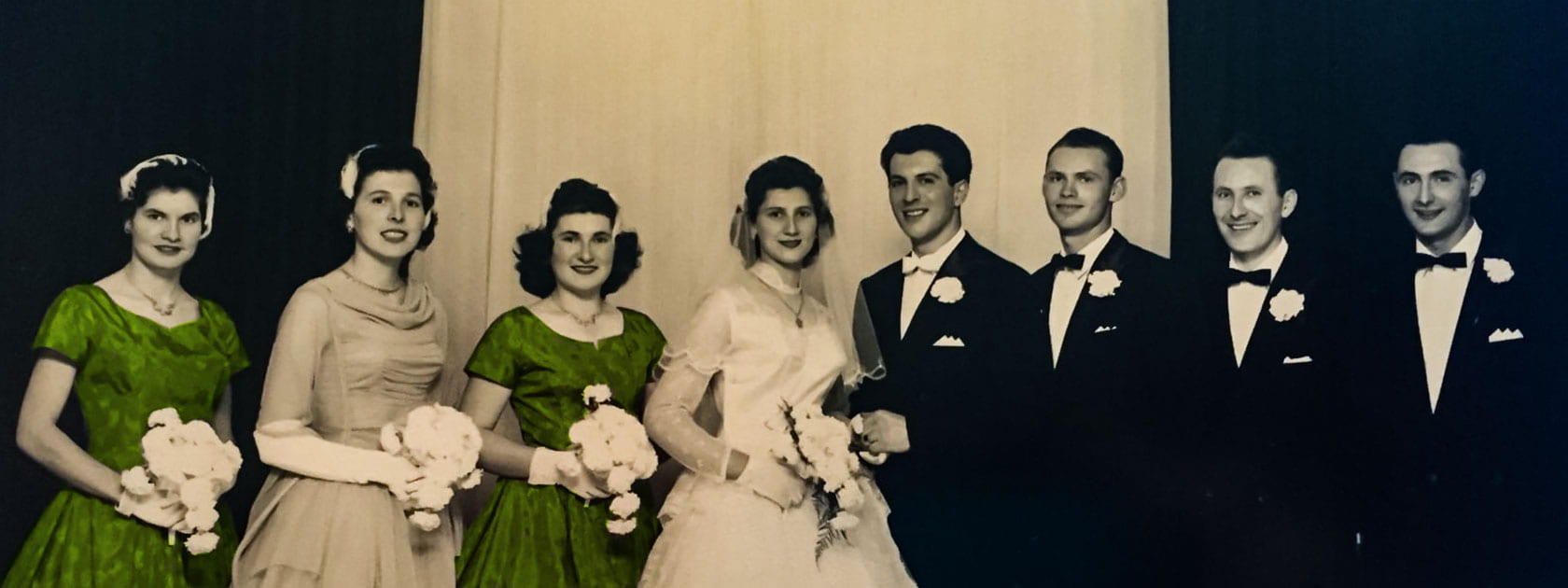Date
July 07, 2011
Maker
Columbus Centre
Accession#
ICEA2011.0054.0001
Interview With Luc Salvador
Luc Salvador was born Luc Napoleon Augustus Caesar Salvador on April 10, 1939 in Lachine, Quebec. He is the youngest of three sons to Yvonne Salvador (née Gagnon), and Luciano Salvador. Prior to his father’s immigration from Carpenedolo, Italy in the early 1920s, the family name was Salvadori, and it was only when an immigration officer in Canada misspelled his last name did their name become Salvador. Luc’s father created great success for himself in Lachine, Québec as Vice-President of a fruit and fruitcake company named Saxonia. All of his achievement was lost when the Royal Canadian Mounted Police (RCMP) arrived at the family home to arrest Luciano the day before his 50th birthday. His father was arrested and only had enough time to grab his razor and tooth brush before he was sent to Île Ste-Hélène as a temporary holding place since Petawawa was not fully constructed yet. He was later taken to Petawawa and transferred to New Brunswick when the German prisoners of war needed additional space at Petawawa, however the family had little or no information while he was away. Luc’s mother was forced to sell his father’s Packard car, and move out of their home in order to generate income from renting. Luciano was interned for 14 months before his wife’s efforts working with their local Member of Parliament paid off and he was released. The family was forced to sell the family home and rebuild with a new business – a grocery store called Salvador Market.
In this opening clip Luc Salvador introduces himself and speaks about his father’s early life in Canada.
Luc Salvador briefly talks about his father’s arrest and internment.
Luc Salvador briefly describes how the family survived during his father’s internment.
In this clip Luc Salvador describes his father’s return home after his internment.
Luc Salvador speaks about his parents and talks about their early life in Montreal.
Luc Salvador talks about his father’s migration to Canada and his work with Saxonia.
Luc Salvador discusses how his father learned how to speak French after his arrival in Montreal.
Luc Salvador describes the neighbourhood he grew up in Montreal, QC.
Luc Salvador speaks about attending a French language school growing up in Montreal.
Luc Salvador describes the ethnic make-up of his neighbourhood and talks about his father’s ties to the Italian Canadian community.
Luc Salvador mentions that he does not remember facing discrimination while growing up as he identified more predominantly with his French heritage.
In this clip Luc Salvador talks about not knowing the reasons for his father’s internment and not recognizing his father upon his return.
Luc Salvador recounts the day of his father’s arrest and then talks about his internment and release.
Luc Salvador describes how his mother provided for the family during his father’s absence.
Luc Salvador shares some of the stories he heard about his father’s internment, however, he states that his father was more interested in moving forward and restarting his life upon his release.
Luc Salvador describes how his mother moved the family to a little camp ground in northern Quebec during his father’s internment.
Luc Salvador recalls his father had difficulty finding work and starting over after his release from the internment camp. He also comments on changes in his father’s personality and demeanor.
In this clip Luc Salvador talks about issues of compensation.
Luc Salvador speaks about the Member of Parliament who helped to get his father released. He also speaks about his father’s feelings toward his internment.
Luc Salvador speaks about his father’s early life in Italy and his interest in Italian culture.
In this clip Luc Salvador shares that his father never felt any bitterness or anger toward the government for his internment.
In closing Luc Salvador states that he doesn’t believe that his father’s experience in the internment camp was a bad experience.



